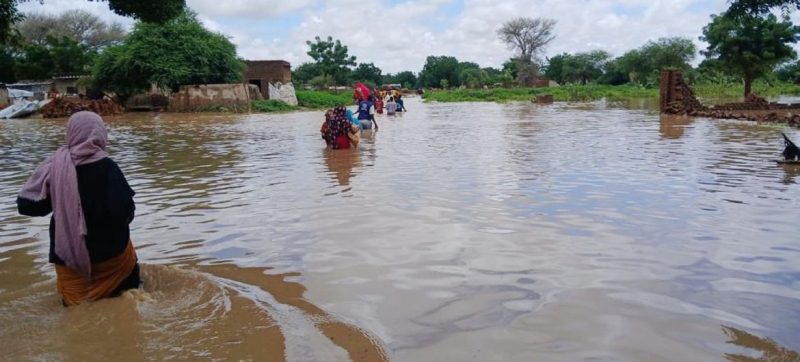
Sudan floods worsen humanitarian crisis. Sudanese children at risk of sexual violence, death, UNICEF warns Humanitarian aid
Women and girls are being sexually abused and tens of thousands of children are at risk of starvation and dangerous diseases due to ongoing war and a deepening humanitarian crisis in Sudan, UN agencies warned on Tuesday.
Speaking at a briefing for journalists in Geneva via video link from Sudan, UNICEF spokesman James Elder relayed the words of a medic from a hospital near Khartoum that has treated hundreds of women and girls who are victims of rape. Some of these girls were only eight years old.
“Many of them are kept captive for weeks. She also spoke about the alarming number of children born after rape who are now being abandoned,” Elder told reporters.
Read also:
Sudan: escalation of hostilities has led to catastrophic consequences for children
He also noted that without action, tens of thousands of Sudanese children could die in the coming months due to the humanitarian crisis, while the outlook would worsen if outbreaks of measles, diarrhea or respiratory infections occurred. According to a UNICEF representative, these diseases would spread “like wildfire” in the face of heavy rains and floods.
Mass starvation
Meanwhile, the International Organization for Migration (IOM) warns that the floods have worsened the problems faced by millions of Sudanese whose lives have already been devastated by military confrontations since April 2022.
Just last week, food security experts reported mass starvation in parts of North Darfur, including Zamzam camp. The camp is home to half a million people who are at risk of malnutrition and death.
The Flee Continues
IOM estimates that 97 percent of those displaced are in food insecure areas. However, the latest figures show that the scale of displacement continues to grow, with more than 10.7 million people seeking safety inside the country, many of whom have fled their homes and shelters multiple times. Fighting in Sennar state, for example, has displaced more than 700,000 people in the past month, with 63 percent of those initially fleeing from other states, particularly Khartoum.
IOM Chief of Mission in the country Mohamed Refaat said that one in three internally displaced people in Sudan initially fled Khartoum. “Almost the entire population of the capital has been displaced, so you can imagine the scale,” he added.
According to the IOM representative, large numbers of civilians remain “trapped” by the fighting and have no access to humanitarian aid or health services. Many are forced to travel long distances to find food, with prices skyrocketing due to shortages of food and essential items. Refaat noted that militias have seized control of various areas, restricting the movement of civilians.
Solar energy and clean water for Kassala residents
Meanwhile, the United Nations Development Programme (UNDP) in Sudan, in collaboration with the Kassala State Water Corporation and local authorities, launched two new solar-powered industrial water pumps. This will more than double the water supply in the eastern and southern parts of Kassala city, from 200,000 liters to 450,000 liters per day.
Kassala city has been unable to provide sufficient water supply due to power outages. The situation has been exacerbated by rising fuel prices in recent months. As a result, residents, including displaced persons arriving from conflict-affected areas, are experiencing significant water shortages.
With the new pumps and solar energy, the city will be able to continuously supply sufficient clean water, regardless of power outages. “Sudan’s water crisis requires immediate and coordinated action,” said Suraye Buzurukova, UNDP Deputy Resident Representative in Sudan.
